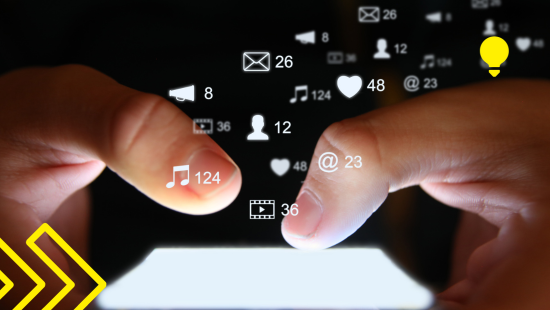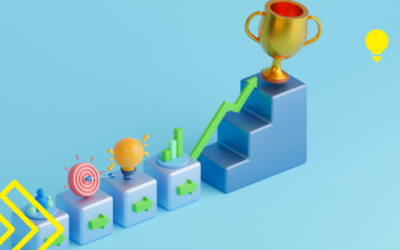27 November 2023

Introduction: The Rising Epidemic of Information Overload
In today’s digital age, we are constantly bombarded with an overwhelming amount of information. From social media updates to news articles, emails to text messages, the sheer volume of information can leave us feeling exhausted and overwhelmed. This phenomenon is known as information overload, and it has become a rising epidemic in our society.
The constant stream of information can lead to feelings of anxiety, stress, and even burnout. We find ourselves constantly checking our devices, trying to keep up with the latest updates and news. But in this quest for knowledge, we often find ourselves drowning in a sea of excessive information consumption.
However, it is important to remember that we have the power to take control of our digital lives. By setting boundaries and practicing mindful consumption, we can navigate through the sea of information without feeling overwhelmed. It’s about finding a balance between staying informed and maintaining our mental well-being.
In this article, we will explore the causes and effects of information overload in more detail. We will also discuss strategies and techniques to help you manage this epidemic effectively. Remember, you have the ability to regain control over your digital life and create a healthier relationship with information consumption. Let’s embark on this journey together towards a more balanced and fulfilling existence in the digital age.
The Negative Effects of Information Overload on Productivity and Mental Well-being
In today’s fast-paced world, we are constantly bombarded with information from various sources. While access to information is a valuable asset, it can also have negative effects on our productivity and mental well-being.
One of the main consequences of information overload is a loss of productivity. With an overwhelming amount of data to process, it becomes challenging to prioritize tasks and make effective decisions. This leads to a state of mental fatigue and decision paralysis, where we struggle to take action due to the fear of making the wrong choice.
Moreover, information overload can contribute to increased levels of stress and anxiety. Constant exposure to excessive information can overwhelm our minds, causing us to feel overwhelmed and unable to focus. This cognitive overload not only affects our ability to concentrate but also hampers creativity and problem-solving skills.
To combat these negative effects, it is crucial to find balance in our consumption of information. Setting boundaries by limiting screen time or taking regular breaks from technology can help alleviate stress and prevent cognitive overload. Additionally, practicing mindfulness techniques such as meditation or journaling can enhance mental well-being by promoting clarity and reducing anxiety.
Remember, in this age of abundant information, it’s important not just how much we know but how effectively we use that knowledge. By managing information overload wisely, we can reclaim our productivity, protect our mental well-being, and lead more fulfilling lives.
Tips and Strategies to Manage Information Overload Effectively
One powerful technique is information filtering. By utilizing tools such as search filters, email filters, or content curation apps, you can streamline the information you receive and ensure that only the most relevant and valuable content reaches you. This allows you to save precious time and energy by avoiding unnecessary distractions.
Additionally, mastering time management strategies is crucial in combating information overload. Techniques like the Pomodoro Technique or time blocking can help you allocate dedicated periods for focused work without interruptions. By setting clear boundaries around your time, you create an environment conducive to productivity and minimize the chances of being overwhelmed by excessive information.
Prioritization methods also play a vital role in managing information overload effectively. By identifying your most important tasks or goals, you can allocate your attention accordingly. Whether it’s using Eisenhower’s Urgent-Important Matrix or simply creating a to-do list with clear priorities, these techniques help ensure that your focus remains on what truly matters amidst the sea of incoming data.
Lastly, setting boundaries with technology is essential in combating information overload. Establishing designated times for checking emails or social media notifications prevents constant interruptions throughout the day. By taking control over when and how often technology demands our attention, we reclaim our ability to concentrate on meaningful tasks without succumbing to digital distractions.
Remember that managing information overload is not about completely disconnecting from the world but rather finding a balance that allows us to stay informed while remaining productive and focused on our goals. Embrace these tips and strategies as tools in your arsenal against overwhelming amounts of data – for with effective management comes clarity, productivity, and ultimately success in navigating this digital age!
Implementing a Digital Detox: Unplugging from Technology to Recharge Your Mind
It has become increasingly important to take a step back and prioritize our mental well-being. Implementing a digital detox is an empowering way to unplug from technology and recharge your mind. By consciously choosing to disconnect from screens and immerse ourselves in screen-free activities, we can cultivate a sense of balance and mindfulness in our lives.
A digital detox offers an opportunity to break free from the constant distractions of notifications, emails, and social media feeds. It allows us to reclaim our time and redirect our focus towards activities that nourish our minds and souls. Whether it’s spending quality time with loved ones, engaging in hobbies or outdoor pursuits, or simply practicing mindfulness exercises, a digital detox encourages us to be present in the moment.
By stepping away from technology for designated periods of time, we create space for self-reflection and introspection. We give ourselves permission to slow down, reconnect with nature, and engage in activities that bring us joy. In doing so, we not only recharge our minds but also foster creativity and enhance overall well-being.
So why not challenge yourself to implement a digital detox? Start by setting aside dedicated periods each day or week where you disconnect from screens entirely. Replace screen time with activities that promote mindfulness – whether it’s reading a book, going for a walk in nature, practicing yoga or meditation – find what resonates with you.
Remember that taking care of your mental health is just as important as tending to your physical well-being. Embrace the power of a digital detox as you unplug from technology and embark on a journey towards greater peace of mind and inner harmony.
Practicing Mindful Consumption: Curating Your Information Intake Wisely
In a world filled with information overload, it’s essential to practice mindful consumption. By curating your information intake wisely, you can take control of what you read, watch, and listen to, ensuring that it aligns with your values and goals.
Mindful browsing habits involve being intentional about the content you engage with. Instead of mindlessly scrolling through endless feeds, take a moment to reflect on what truly matters to you. Selective reading and viewing choices allow you to prioritize quality over quantity. Seek out reliable sources, thought-provoking articles, and inspiring content that adds value to your life.
Adopting a quality over quantity mindset empowers you to make conscious decisions about the information you consume. Rather than being overwhelmed by an abundance of shallow content, focus on deepening your knowledge in areas that interest you. This deliberate approach not only enhances your understanding but also promotes personal growth and intellectual stimulation.
Remember, it’s not about how much information you consume but the impact it has on your life. Choose wisely and let mindful consumption guide you towards a more enriching and fulfilling journey of knowledge acquisition.
Utilizing Tools for Efficient Organization and Information Management
Staying organized and managing information effectively is key to success. Thankfully, we have a plethora of tools at our disposal that can help us in this endeavor.
Note-taking apps have revolutionized the way we capture and store information. With features like cloud syncing, cross-platform accessibility, and advanced search capabilities, these apps make it effortless to jot down ideas, take meeting notes, or save important snippets of information. No longer do we need to worry about losing a crucial piece of information or struggling to find it amidst piles of paper.
Bookmarking tools are another game-changer when it comes to organizing online resources. Instead of relying on memory or endless browser tabs, these tools allow us to save and categorize web pages for future reference. Whether it’s an article that caught our eye or a tutorial we want to revisit later, bookmarking tools ensure that valuable content is just a click away.
Task management software takes organization to the next level by helping us prioritize and track our daily tasks. These powerful tools enable us to create task lists, set deadlines, assign responsibilities, and monitor progress—all in one centralized platform. With reminders and notifications keeping us on track, we can stay focused and accomplish more in less time.
By utilizing these efficient organization and information management tools like note-taking apps, bookmarking tools, and task management software—we can streamline our workflows and free up mental space for creativity and innovation. Embrace these digital companions as your allies in productivity as you navigate the demands of modern life with ease!
Setting Clear Goals and Priorities: Filtering Out Non-Essential Information
In order to achieve success and make progress in any endeavor, it is crucial to set clear goals and establish priorities. By doing so, we can filter out non-essential information and focus our energy on what truly matters.
Prioritization techniques play a vital role in this process. They help us identify the most important tasks or objectives that align with our overarching goals. Whether it’s the Eisenhower Matrix, the Pareto Principle, or other goal-setting frameworks, these tools provide us with a structured approach to determine what deserves our attention and effort.
By setting clear goals, we create a roadmap for success. We gain clarity on what we want to achieve and can then break down those goals into actionable steps. This not only helps us stay focused but also allows us to measure our progress along the way.
Filtering out non-essential information becomes easier when we have a clear understanding of our priorities. We learn to distinguish between what is urgent and what is important, enabling us to allocate our time and resources effectively.
Remember, setting clear goals and establishing priorities is not just about productivity; it’s about living a purposeful life. It empowers us to make intentional choices that align with our values and aspirations. So let’s embrace these prioritization techniques and goal-setting frameworks as powerful tools on our journey towards success!
The Benefits of Adopting a Minimalistic Lifestyle in the Digital Era
In the fast-paced and digital era we live in, adopting a minimalistic lifestyle can bring about a multitude of benefits. Simplifying your digital presence and decluttering your virtual space can lead to a more focused life, allowing you to truly enjoy the present moment.
By embracing minimalism in the digital realm, you can free yourself from the overwhelming distractions that come with excessive online clutter. Streamlining your digital footprint not only reduces stress but also enhances productivity and efficiency. With fewer notifications vying for your attention, you can devote more time and energy to what truly matters.
A minimalist approach to technology encourages intentional usage and mindful engagement. By consciously curating your online presence, you create space for meaningful connections and experiences. You become more aware of how technology impacts your well-being, enabling you to strike a healthier balance between the virtual world and real-life interactions.
Moreover, adopting a minimalistic mindset allows you to appreciate simplicity in all aspects of life. It encourages conscious consumption, helping you prioritize quality over quantity and find contentment in owning less. By letting go of excess material possessions and digital clutter, you create room for clarity, creativity, and personal growth.
Embracing minimalism in the digital era is not about completely disconnecting or depriving yourself of technology’s benefits; rather it’s about finding harmony between the virtual world and the physical one. It’s about reclaiming control over your time and attention so that you can savor each moment with greater focus and intention.
So why not embark on this journey towards a simpler way of living? Declutter your virtual space, simplify your digital presence, and experience firsthand the transformative power of adopting a minimalistic lifestyle in our increasingly connected world.
Cultivating Healthy Habits for Long-term Success in Taming Information Overload
There are ways to tame this overwhelming flood of information and cultivate healthy habits for long-term success.
One key habit is consistent self-reflection. Take a moment each day to pause and reflect on the information you have consumed. Ask yourself: Is this information serving me? Is it aligning with my goals and values? By regularly evaluating the relevance and impact of the information we consume, we can make more mindful choices about what we allow into our lives.
Practicing digital mindfulness is another essential habit in taming information overload. Set boundaries around your digital consumption by allocating specific times for checking emails, social media, and news updates. This intentional approach helps prevent mindless scrolling and allows you to focus on what truly matters.
Lastly, adopt a lifelong learning mindset. Embrace the fact that there will always be more to learn and explore. Instead of feeling overwhelmed by the vast amount of available information, see it as an opportunity for growth and personal development. Cultivate curiosity, seek out reliable sources, and engage in continuous learning to stay informed without feeling overwhelmed.
Remember, taming information overload is not about avoiding or ignoring valuable knowledge; it’s about developing healthy habits that enable us to navigate the digital landscape with intentionality and purpose. By practicing consistent self-reflection, embracing digital mindfulness, and adopting a lifelong learning mindset, you can cultivate a balanced relationship with information that leads to long-term success in all aspects of your life.
Conclusion: Embrace the Digital Age Mindfully and Take Control of Information Overload
In this fast-paced digital era, it’s easy to feel overwhelmed by the constant flow of information and the demands for our attention. However, it’s important to remember that we have the power to take control of our digital lives and find balance in this ever-connected world.
Rather than letting ourselves be consumed by information overload, we can choose to embrace the digital age mindfully. This means being intentional with our time and attention, and making conscious choices about how we engage with technology.
Reclaiming your time and attention starts with setting boundaries. It’s important to establish tech-free zones or designated times when you disconnect from devices and reconnect with yourself or loved ones. By doing so, you create space for reflection, creativity, and genuine human connections.
Additionally, practicing digital detoxes can be a powerful way to reset and recharge. Taking breaks from social media or other online platforms allows us to step back from the constant stream of updates and notifications, giving us a chance to focus on what truly matters in our lives.
Remember that technology is a tool that should serve us rather than control us. By being mindful about how we use it, we can harness its benefits while avoiding its pitfalls. Take control of your information intake by curating your news sources carefully and seeking out reliable information rather than getting lost in clickbait headlines.
In conclusion, finding balance in the digital era is about reclaiming your time and attention. Embrace technology mindfully, set boundaries, practice digital detoxes when needed, and curate your information sources wisely. By doing so, you can navigate this fast-paced world with intentionality and regain control over your own life amidst the sea of information overload.
Cheers.
Related Articles
Manifest Your Dream Life: A Guide to Crafting an Inspiring Life Vision
Crafting your life vision is more than dreaming—it’s a deliberate act of shaping your future. Explore key elements like identifying life areas, creating vision boards, and establishing a central theme. Embrace this journey to live with clarity and purpose.
The Superhero Complex: Balancing Helping Others with Self-Care
Unveil the superhero complex: a double-edged sword of boundless compassion and self-neglect. Learn how to balance altruism with self-care, navigating the fine line between heroism and burnout. Discover practical tips for cultivating resilience while championing others.
Arrival Fallacy: Why Goal-Based Happiness Does not Work
Explore the perils of goal-based happiness, delving into the Arrival Fallacy. Uncover why chasing goals may fall short in providing lasting joy. Rethink your approach, break free from illusions, and embark on a journey towards authentic, sustainable fulfillment.





Ever stop to think how much you’re spending on marked-up CPMs for Connected TV ads?
If you’re using “premium” audience segments without verifying who you’re actually reaching, that money is likely feeding someone else’s family.
No pressure. Here’s the site if you’re open to see a revolutionary vision for digital advertising
topshelfaudience.com using real-time Intent data from an Integration in our platform to Lotame.com. You can reach me at marketing@mrmarketingres.com or 843-720-7301. And if this isn’t a fit please feel free to email me and I’ll be sure not to reach out again. Thanks!